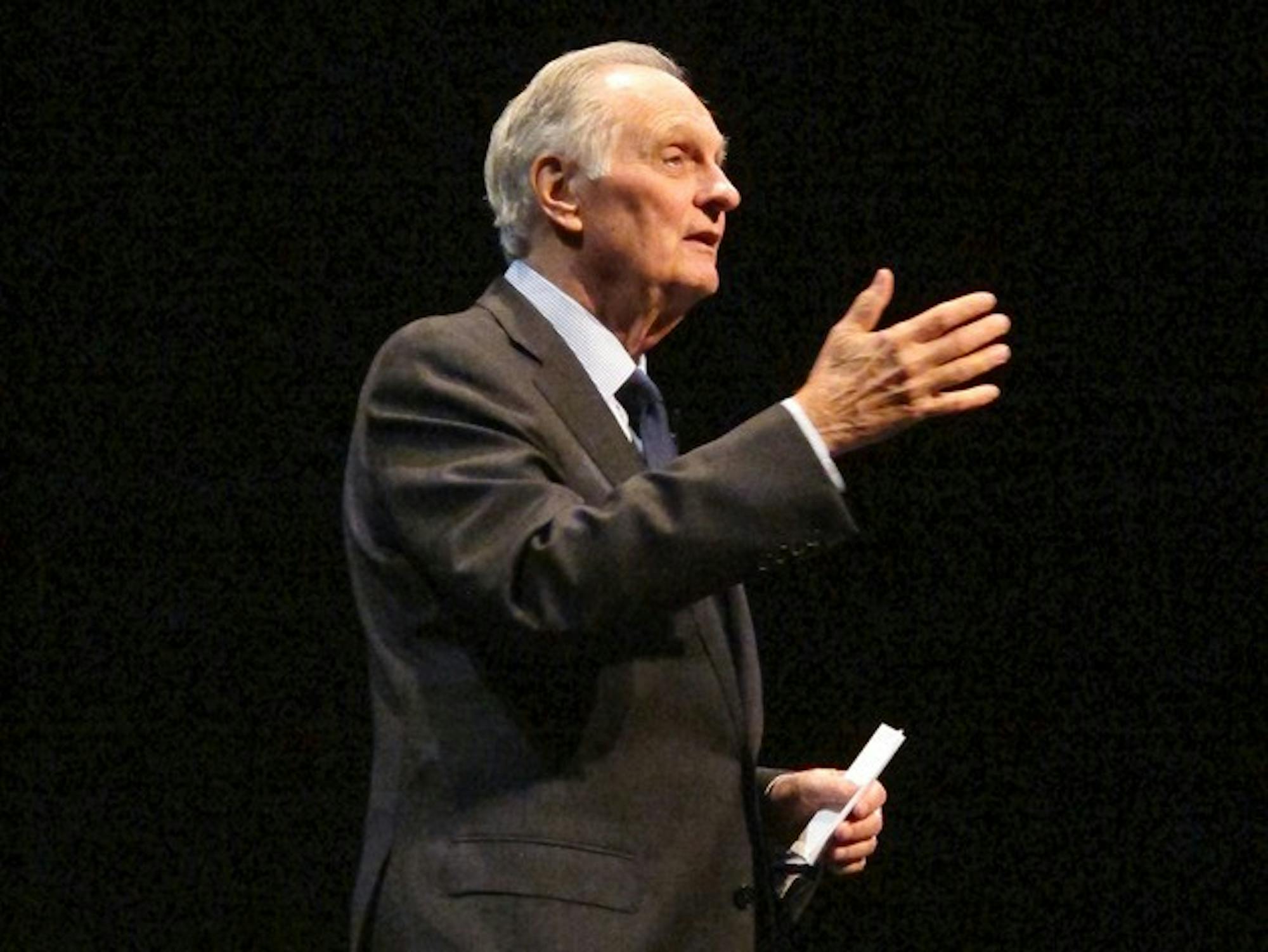He compared this situation to when scientists have a wealth of information but have trouble communicating their ideas to the average person.
Alda emphasized the importance of effective communication in the scientific community, and why it is necessary for government officials and the general public to have a strong understanding of scientific concepts.
Alda, who starred as Hawkeye Pierce in the television show MASH and hosted PBS's Scientific American Frontiers, is visiting campus as a Montgomery Fellow.
Alda first realized the importance of scientific communication during a trip to Chile for PBS, which ended in a medical emergency and visit to the local hospital.
"[The doctor] came in and said, Part of your intestines has gone bad we're going to cut out the bad part and sew the two good ends together,' and I said, So you're going to do an end-to-end anastomosis?" he said. "I did many of them on MASH." he said.
Although he was familiar with the procedure, it was reassuring to hear the doctor give a simple explanation of the operation, given his mental state at the time. He added that his sense of awareness of the situation assuaged his anxiety.
He contrasted this incident with instances on "Scientific American Frontiers" when he had trouble understanding scientific concepts. In an attempt to connect with the television show's scientists on a more personal level, he asked them to talk about their research in a casual dialogue.
Alda then showed a video of Long Island residents attempting to define difficult scientific concepts.
"These are sincere, intelligent, sometimes well-educated people who just don't know the vocabulary," Alda said.
This problem is present in the government as well, and he said he knew of elected officials who sat on panels even though they could not understand what scientific presenters were saying to them.
After PBS, Alda wondered how he could help presenters be more conversational during lectures, and concluded that the scientific community could use improvisation, an exercise that had always helped him in acting.
Alda developed the Alan Alda Center for Communicating Science at Stony Brook University, which leads workshops that use improvisational theater games to present scientific information and research.
Dartmouth has partnered with the center to educate students and faculty on scientific communication, and several professors attended a workshop at Stony Brook last fall.
The College is currently piloting a class for graduate students, which employs improvisational exercises to help students make a connection with the audience, said biology professor Mark McPeek, who teaches the course with science and technology outreach director Nancy Serrell, theater professor Christian Kohn and Gifford Wong, a PhD candidate in earth sciences.
"Most students came in thinking that we were going to teach them how to dumb down scientific information, but we are adamant that is not what's going on here," McPeek said. "We're trying to teach people to understand exactly the level of detail and content needed, and tell a story in a language the audience can understand."
McPeek said he would not use the same language when discussing a concept at a faculty meeting as he would when lecturing to a freshman biology class, simply because the students did not yet know the terminology.
Physics and astronomy professor John Thorstensen, who attended Alda's lecture, said effective communication is necessary to engage students.
"It's important to connect with students, and I know some material in my class might sometimes seem dry, but I love what I teach and I want them to love it too," Thorstonsen said.
While on campus, Alda will teach two master classes in science communication for faculty and graduate students, visit biology and physics classes and meet with theater students.
Alda has been awarded the National Science Board's Public Service Award and the American Chemical Society's James T. Grady-James H. Stack Award for Interpreting Chemistry for his contributions.




